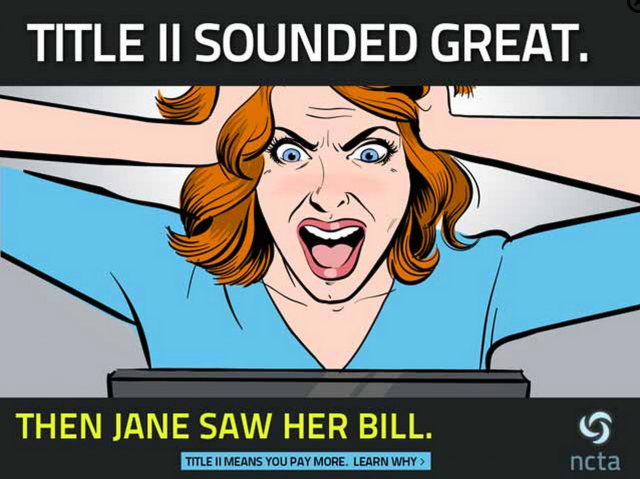Making Internet service a utility—what’s the worst that could happen?

The cable industry takes a subtle approach to anti-Title II advertising. (credit: National Cable & Telecommunications Association)
It's 2020, and a coronavirus pandemic has underscored how crucial broadband service is to the lives of Americans for work, entertainment, and school. Internet service is a necessity, and yet it isn't regulated as a utility the way services like water and electricity are. But back in 2014 (when this story was originally published) and 2015, there was a hot debate over whether the Federal Communications Commission should treat broadband service like a utility-or, more precisely, as a Title II common-carrier service-in order to impose net neutrality rules.
We're resurfacing this article from December 2014, which examined the cable industry's argument that utility-style regulation would hurt broadband users and broadband providers. Ultimately, the FCC did reclassify broadband to enforce net neutrality in 2015, but never imposed strict utility regulations like price caps or network unbundling. Broadband users enthusiastically supported the rules and ISPs admitted to investors later that the extra regulation didn't harm their businesses. But FCC Chairman Ajit Pai deregulated the broadband industry anyway, eliminating net neutrality rules and other consumer protections such as a prohibition on hidden fees. Since Pai's decision, the top ISPs have been decreasing network investment despite operating in the mostly regulation-free environment they sought, and the FCC has relied on ISPs' voluntary promises instead of real rules to keep customers online during the pandemic.
There seems to be nothing the broadband industry fears more than Title II of the Communications Act.
Title II gives the Federal Communications Commission power to regulate telecommunications providers as utilities or "common carriers." Like landline phone providers, common carriers must offer service to the public on reasonable terms. To regulate Internet service providers (ISPs) as utilities, the FCC must reclassify broadband as a telecommunications service, a move that consumer advocacy groups and even President Obama have pushed the FCC to take.
Read 63 remaining paragraphs | Comments